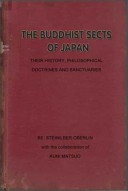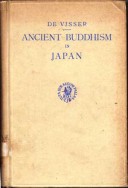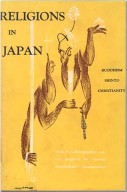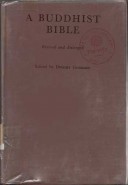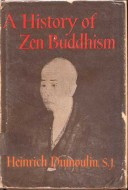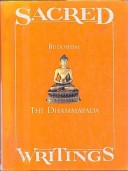Tìm Sách
Sách tiếng Anh-English >> Development Of Moral Philosophy In India
Thông tin tra cứu
- Tên sách : Development Of Moral Philosophy In India
- Tác giả : Surama Dasgupta
- Dịch giả :
- Ngôn ngữ : Anh
- Số trang : 229
- Nhà xuất bản : Orient Longmans LONDON
- Năm xuất bản : 1961
- Phân loại : Sách tiếng Anh-English
- MCB : 1210000004953
- OPAC :
- Tóm tắt :
PREFACE
The book was written several years ago under close personal supervision of the late Professor Surendra Nath Dasgupta while he was the principal, Sanskrit College, Calcutta. The late Professor as is well-known from his works to many, had always placed before himself and those whom he guided in their research, a standard of his own. It was his opinion that any work to have some worth should be so exhaustive and complete in its treatment of the subject that it would not require the labour of anyone else for the completion of the investigation already undertaken. India has a cultural history extending over four to five thousand years and as such any investigation in a particular branch of study has to be a very painstaking one which easily spreads over several years. So with the kind assistance and supervision of the late Professor, the work undertaken by me required a number of years for its completion. The book entitled originally “Good, Evil and Beyond” extended over 842 pages in typescript. Later on the Ph. D. degree of the Calcutta University (equivalent to its D. Litt. degree by the present revised standard) was awarded to me on the merit of the work.
The war started in 1939 and even long after it was over, conditions for publication of books were very difficult both in India and England. From 194Ỉ to 1930 we stayed in England but we could only see through the press the fourth volume of the late Professor’s A History of Indian Philosophy. We came back to India in 1930 and in 1932 Professor Dasgupta passed away while working on the fifth volume of his History.
All our life we never made any distinction between the researches undertaken by ourselves and worked together on almost every subject that interested both or either of us. After the demise of my husband, I had to take over the task of editing, completing and arranging to publish his unpublished works complete or incomplete. Naturally therefore, I could not turn my attention to the publication of my own books. Publication expenses and difficulties being as hard as ever, the present work had to be revised and reduced further and further till I could bring it to its present size. This means that I had to leave out much important materials which may later on constitute another volume. I had also to leave out the Sanskrit and Pãli quotations indicating only the references. Should there be any suitable opportunity for reprinting the book, all these may be re-introduced and the unpublished materials Incorporated. The texts that were used in the writing of the book belong to different periods of India’s cultural history and some of these had to be brought to Calcutta from outside for the completion of the work. A number of these texts was not available at the time of its publication. Situated as I was far away from the facilities available at the Calcutta libraries, this difficulty could not be solved. References from the books mentioned below could not be re-checked owing to this difficulty; other references have all been duly checked. The following books were not available at the time of revising the proofs:
- Advaitasiddhi. 2. AstasShasri. 3. Bhaktirasãmrta-sindhu.
- Bodhi- sattvabhũmi. Vol. II. 5. Chãyãvyãkhyã of Nagesa.
- Mahãkarma-vibhanga 7. Prabhã commentary of Narasimha Pandita on the Siddhăntamuktăvalì. 8. Ratnãkarãvatãra. 9. Sthãnãnga-sũtra.
- Vijnãnãmrta-bhạsya. 11. Visesã-vasyaka-bhãsya with its commentary.
- Vyãkhyã of Yasomitra. Vol. II.
For the study of the large number of texts in Sanskrit and Pali, published and unpublished, and their interpretation in connection with the present work, I am under a very heavy debt of obligation to my husband, the late Professor Surendra Nath Dasgupta. Had it not been for his constant help, guidance and encouragement, the work could not have been completed by myself alone. The introduction to the book, which is fairly comprehensive since it gives an outline of the different views of the various systems covering different areas of the history of Indian culture, was written at the kind suggestion of the late Professor F. W. Thomas of Oxford University, for the convenience of readers. The concluding chapter gives a critical evaluation of the basic assumptions of Indian thought.
India is particularly known for its sacred tradition of scholarship and knowledge, a spiritual heritage which passed from teacher to pupil through long generations. It is for the advancement of knowledge and wisdom that the ancient savants of India had dedicated their live in the past. With reverence for such wisdom, I present this book to the modern reader so that some communication with the past, which was always full and rich with intellectual investigations, may be fruitfully revived. As regards thoughts and ideas, I do not think that there can be any limit of time, any demarcation such as past and present, ancient and modern or any geographical limitations. Whatever is ancient was also fresh and new and can ever be of great help as some of the ideas presented by modern thinkers may be. Human thoughts and values are ageless and may be true for all time only with perhaps some modifications due to the prevailing situation in a country. Moral philosophy in India in its practical bearing on life is one such basic thought which holds good for all people of all ages and the message of India, therefore, can be placed forward to those who feel interested in such a quest.
It may be of some interest to the readers to know that the present work, by a woman author, has been printed perhaps for the first time in India, in a Press run by a woman pupil of hers. My sincerest gratefulness and best wishes go to Dr. A. K. Gayen, a devoted young friend of both my husband and myself and his wife, Shrimati Krishna Gayen M. A., one time my pupil and a dear friend for ever. It is through their active co-operation and enthusiasm that the publication of the book has been possible.
I am grateful to Mr. Tara Singh, the Deputy Librarian and Mr. S. D. Sharma M. A., of the Lucknow University Tagore Library, for their kind assistance in lending me books liberally for the correction of references.
I beg the forgiveness of readers for any printing mistakes that might remain.
University of Lucknow
Lucknow, India SURAMA DASGUPTA
December 18, 1960
CONTENTS
Chapter I—Introduction:
Religion Philosophy and Morality
Standard in the Vedic Samhitã
Standard in the Upanisads
Standard in the Sutras and the Smrtis
The Inscriptions of Asoka
Standard in the Mahabhãrata
Standard of Conduct in the Ayurveda
Standard of Conduct in the Materialistic School of Thought
Standard in the Different Philosophical Systems
Ethics and Mechanism of Action
The Doctrine of Grace
Chapter II—The Vedas:
Concept of the Good and Future
Existence as related with it
Virtues and Vices
Dina or Offering of Gifts
Sins and their Expiation
Chapter III—The Upaaisads:
The Upanisads
Forms of Karma, Good and Evil, Tapas and Substitution-Meditation
The Tapas
Chapter IV—The Mimamsa:
The Self
Prabhakara’s Conception of Self and Knowledge
The Dharma
Self-Validity of Knowledge
Intermediary between the Sacrifice and its Effect
An Analysis of the Imperative Nature of a Vedic Mandate
Chapter V—The Smrtis:
The Authority of the Smftis
Validity of the Practices (Ãcãra) of Good Men
Karmaphala in the Manu-samhita
Expiation (prayascitta)
The General Duties, the Caste Duties and the Asrama Duties
The Last Three Stages of Life
The Smrti view of Merits and Demerits and their Transference
Chapter VI—The Gits and the Pancaritras:
The Gĩtã
The Pancaratras and the Path of Bhakti
Chapter VII—Vedanta:
Knowledge and Karma according to Sankara, Bhaskara, Ramanuja and Vijnanabhiksu
The Means of Emancipation according to Sankara
Brahma-Knowledge (the highest good) and the Cessation of Avidyã According to Citsukha,
Madhusũdana and Vimuktatman
Chapter VIII—The Simkhya-Yoga:
The Sãmkhya-Yoga
The Sãmkhya-Yoga Ethics
Classification of Actions: Its Principle
Vãsanã and Samskãra
The Klesas as the Root Cause of all Actions
The Means to Emancipation
Chapter IX—Nyiya and Vaisesika:
Nyaya and Vaisesika: Preliminary remarks
Nature of Emancipation
Attainment of Liberation
The Agent
Karma and its Results
How a Karma Produces its Results
False Knowledge and its Removal
Motivation of Action
Nyaya view of Volition as distinguished from the Prabhakara School of Thought
Chapter X—Buddhism:
Buddhism (Preliminary)
The Doctrine of Karma according to the Pali Texts
Scepticism regarding Karma and Rebirth and its Refutation in Pali Texts
Historical Introduction to the Abhidharmakosa
General Principles of the Philosophy of the Abhidharmakosa
The Agent
Chapter XI—Buddhism (Continued):
Karma as Vijnapti and Avijnapti
Diverse Considerations about Karma and Karmapatha, Path of Acts
The Philosophy of Karma in the MahSkarma-vibhanga
Chapter XII—Buddhism (Continued):
The Path of the Bodhisattva
The Career of the Bodhisattva
The Pãramitãs
Nibbãna
Jhna or Dhyana (Meditation)
Chapter XIII—The Jaiaa System of Thought:
The Jaina System of Thought
The Jaina Categories
The Jiva
Classification of Selves (Jiva)
Ajiva (Matter)
Punya and Papa (Good and Evil)
Free Will and Determinism
Virtue and Vice and the Value of Actions
Ãsrava (Passions)
Bandha (Bondage)
Sam vara (Control)
Nirjara (Release)
Moksa (Liberation)
Yoga and Other Virtues
Chapter XIV—Conclusion:
INDEX
 Facebook
Facebook
 Google
Google
 Google+
Google+

